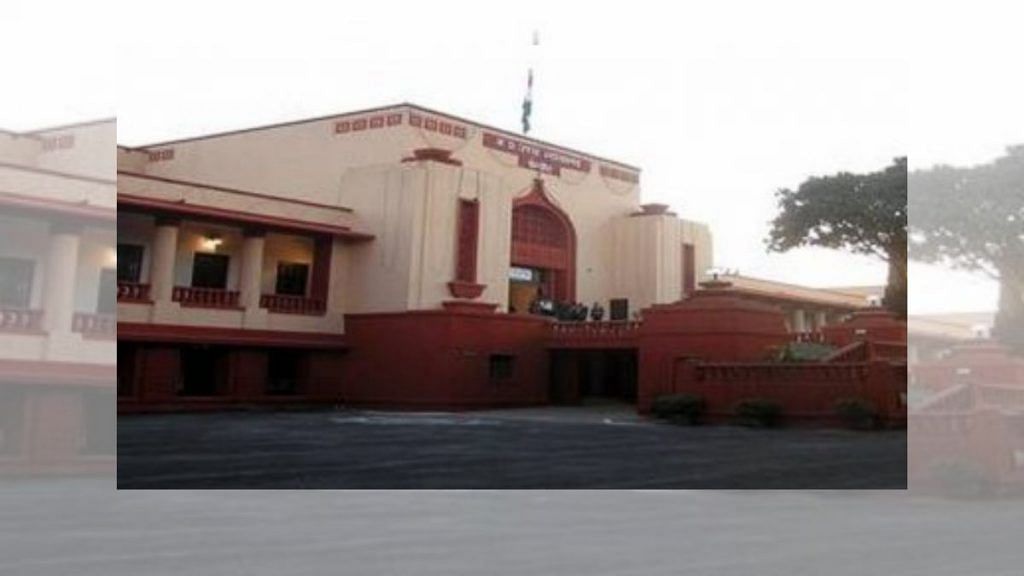New Delhi: The Madhya Pradesh Police’s “enthusiasm” to solve a murder case in a “tearing hurry” 13 years ago has turned out to be costly for the state.
This Wednesday, the MP High Court slapped a fine of Rs 42 lakh on the state for falsely implicating a 36-year-old man in the case, and overturned the trial court order convicting him.
Arrested in September 2008, the accused, Chandresh Marskole, was a fourth-year medical student of a state government medical college when he was booked for the murder of his girlfriend. A sessions judge in Bhopal pronounced him guilty in July 2009 and sentenced him to life. Ever since his arrest, Marskole has been in jail.
But on an appeal filed by him, the HC division bench of Justices Atul Sreedharan and Sunita Yadav set aside the conviction and termed the police investigation as “motivated and influenced”, carried out with the sole purpose of “falsely implicating an innocent person”.
“The discharge of state functions with malicious intent or in a manner malafide, cannot clad the state with the armour of sovereign immunity,” the court observed, while awarding the compensation to Marskole.
The evidence brought on record reeked of malice, the court remarked, on account of which he has spent over 4,740 days in prison, throwing his “life into disarray”.
Also read: SHO arrested in UP for ‘raping 13-year-old who filed gang-rape case’, now police station under probe
Lapses could be deliberate
The bench pointed out the loopholes in the police investigation, and noted that the lapses could be deliberate, probably to save the actual perpetrator who, in turn, was made a crucial witness in the case.
Though the court did not render any conclusive opinion against this witness, who was a senior resident at the hospital attached to the medical college where the accused studied, it did observe that the police should have interrogated him about his whereabouts on the day of the murder.
Marskole was arrested on 20 September 2008, following a letter the senior resident wrote to the Inspector General of Bhopal, alleging the murder. According to the letter, the senior resident had lent his car and driver to Marskole on 19 September 2008, to go to Hoshangabad, where the latter had urgent work.
However, midway, Marskole took a detour and went towards Panchmarhi, where he asked the driver to stop the vehicle. When the driver went to answer nature’s call, Marskole allegedly took out “heavy” bedding from the car’s boot and threw it into the ravine, the letter alleged.
According to the letter, the senior resident had left for Indore on that day and when he returned to Bhopal at night, his driver, who too had come back by then, narrated the events to him.
In its 78-page verdict, the HC raised doubts over the letter’s contents.
After examining the senior resident’s statement and that of his driver, the court observed that both had given contradictory versions. While the driver never claimed to have seen the murder, the senior resident in his version stated it was his driver who said “Marskole had murdered his girlfriend”.
Also, if the driver never witnessed the killing or had never helped Marskole dump the body, how could he assume that the bedding thrown by the accused was “heavy”, the court wondered.
Moreover, the court took note of a toll plaza ticket that mentioned there were four passengers in the car in which Marskole was travelling. The toll plaza charges were levied according to the number of passengers in the vehicle.
“However, the police never probed on this aspect,” the court said.
Another thing that led the court to believe the case was botched was that the police had seized the vehicle in which Marskole allegedly drove to Panchmarhi almost 15 days after the incident.
Even though the mat seized from the car had human bloodstains, the seizure memo that makes a record of articles confiscated during an investigation used the word “secretion” to describe the stains. This, the court remarked, was extremely uncharacteristic since the normal phrase used to describe is “khoon jaise dhabbe” (marks akin to blood).
“Thus, all these factors surrounding the seizure of the vehicle and the mat, on which human blood was found, is highly contrived and smacks of manipulation by the police in fabricating and introducing extraneous evidence during the 15 days that they had the vehicle in their possession, before showing its seizure,” the court said.
‘Discrimination and oppression’
Marskole was on the verge of becoming a full-fledged doctor, a source of financial support for his family, when he was booked and arrested in the case. Since he belonged to the Gond tribe and made it to a state medical college, he was also a source of inspiration for his community, the court said.
The court refrained from commenting with certainty on whether his being a member of a Scheduled Tribe had anything to do with the fate he suffered, but it did mention on record that people belonging to such communities do face “indignity, discrimination and oppression” in the state and it does not “require any extraneous evidence” to prove the same.
The court factored in the monthly remuneration Marskole would have earned on completion of his medical studies to fix the compensation amount as Rs 42 lakh.
“Even by modest accounts, the appellant would have earned at least Rs 3 lakh per annum, whether he be in the service of the state or in private practice. Therefore, in the unique factual circumstances of this case, we hold that the appellant is eligible for compensation on account of the violation of his fundamental right to life under Article 21 of the Constitution of India,” the court said.
(Edited by Nida Fatima Siddiqui)
Also read: SC ‘amazed’ with Allahabad HC order in murder case, acquits 3 death row convicts
